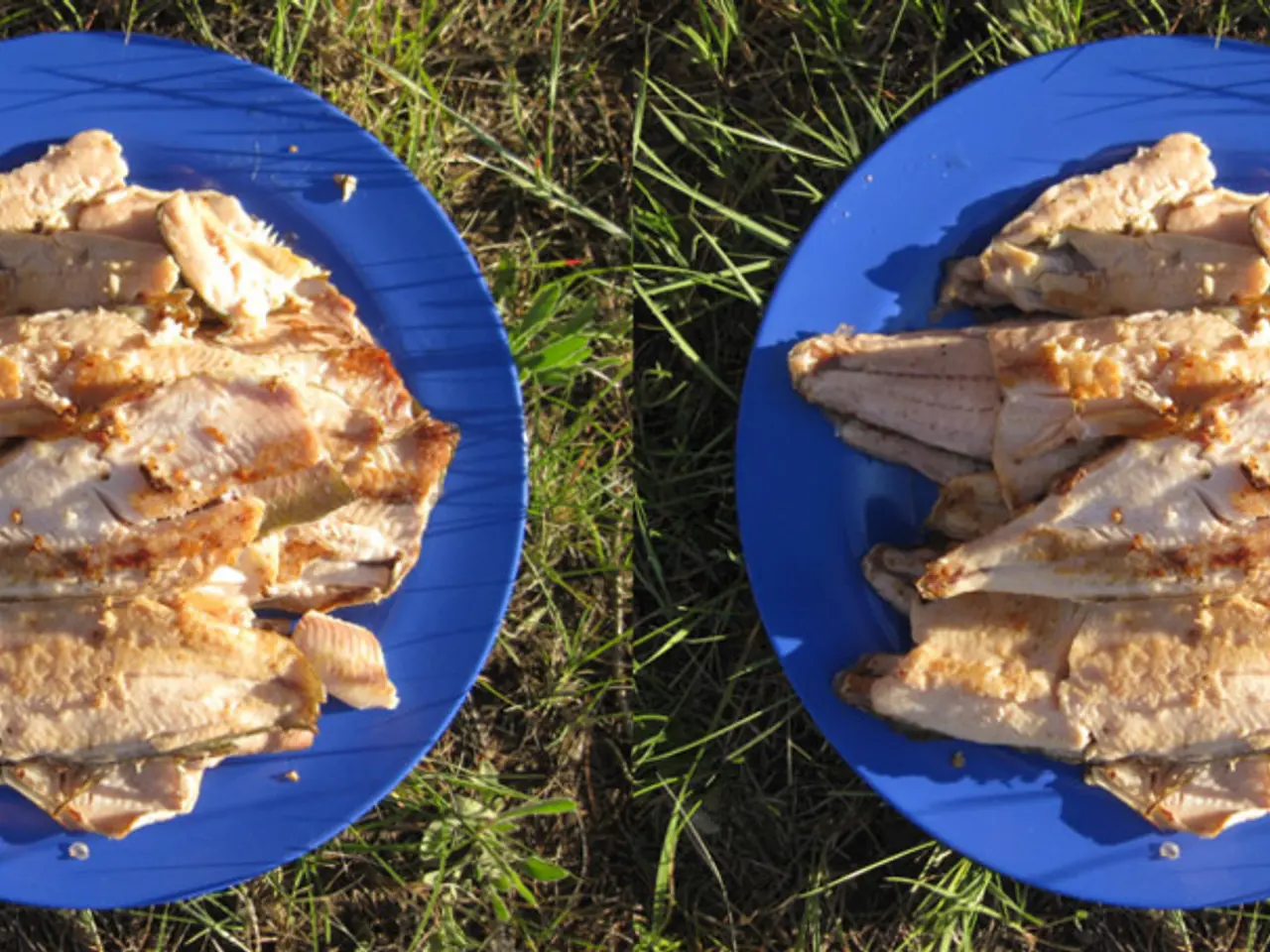Top Foods Laden with Collagen for Optimal Consumption
================================================================
A poor diet can lead to insufficient collagen production, as the body needs essential elements to produce this vital protein [1]. Collagen, the most abundant protein in the body, is found in muscles, bones, tendons, ligaments, organs, blood vessels, skin, intestinal lining, and hair [2].
To naturally boost collagen production through diet, eating foods rich in vitamin C and amino acids is essential. Vitamin C serves as a building block for collagen synthesis, while amino acids are the building blocks themselves [2]. The best foods to encourage collagen formation include citrus fruits, strawberries, bell peppers, leafy greens, fish, eggs, soybeans, nuts, and olive oil. Staying well-hydrated also supports skin hydration and collagen function [2].
Bone broth is another collagen-boosting option. This brew draws collagen out of beef, chicken, or fish bones, leaving a flavorful liquid that can be consumed or used in other dishes [3]. To ensure the broth is free from contaminants, it's recommended to buy only organic bone broth or to cook broth from the bones of organically raised animals.
When it comes to supplements, hydrolyzed collagen (collagen peptides) and undenatured type II collagen are common forms. Hydrolyzed collagen is absorbed and supplies bioactive peptides to stimulate collagen production and tissue repair [1][4]. Recommended daily doses range between 5–20 grams depending on the goal and study, with benefits typically emerging after 3–6 months of consistent use [1][4].
Collagen supplements can be beneficial for a healthy, vibrant body, especially for skin elasticity, joint health, bone density, and muscle support [1][4]. Scientific studies show collagen peptides may improve skin hydration and reduce fine lines, alleviate joint pain and stiffness (notably in osteoarthritis), enhance bone mineral density (particularly in postmenopausal women), and promote lean muscle gains when paired with resistance training [1][4].
However, it's essential to consult a doctor before trying a collagen supplement. A 2019 systematic review suggested that oral collagen supplements could aid in wound healing and maintaining skin elasticity, but further research is needed on the optimal dosage [4].
As age advances, the body may not absorb nutrients or synthesize them as efficiently, possibly requiring a change in diet or the use of dietary supplements. Regular resistance exercise also maximizes the benefits of collagen supplements [1][5].
Protecting the skin from excessive sun exposure and sunburns, particularly early in life, is crucial for maintaining skin health. While skin cream with synthetic collagen may provide a film-like layer to reduce water loss and act as a barrier from environmental elements, it is likely less effective than healthy eating and sun protection.
In summary, a balanced diet rich in vitamin C, amino acids, and healthy fats supports your body’s own collagen production. Bone broth is a natural collagen-boosting option, and collagen supplements can support skin, joint, bone, and muscle health, especially in aging adults or those with joint issues. Combining supplementation with regular resistance exercise maximizes benefits. Further research is needed to determine the optimal dosage for collagen supplements.
- Incorporating healthy diets rich in foods like citrus fruits, soybeans, fish, and leafy greens, which are high in vitamin C and amino acids, can naturally boost collagen production in the body.
- Science shows that collagen supplements such as hydrolyzed collagen and undenatured type II collagen can be beneficial for maintaining skin elasticity, joint health, bone density, and muscle support, particularly in older adults or those with joint issues.
- Protecting the environment by limiting sun exposure helps preserve skin health, while a healthy, balanced diet rich in essential elements supports the body's own collagen synthesis.




